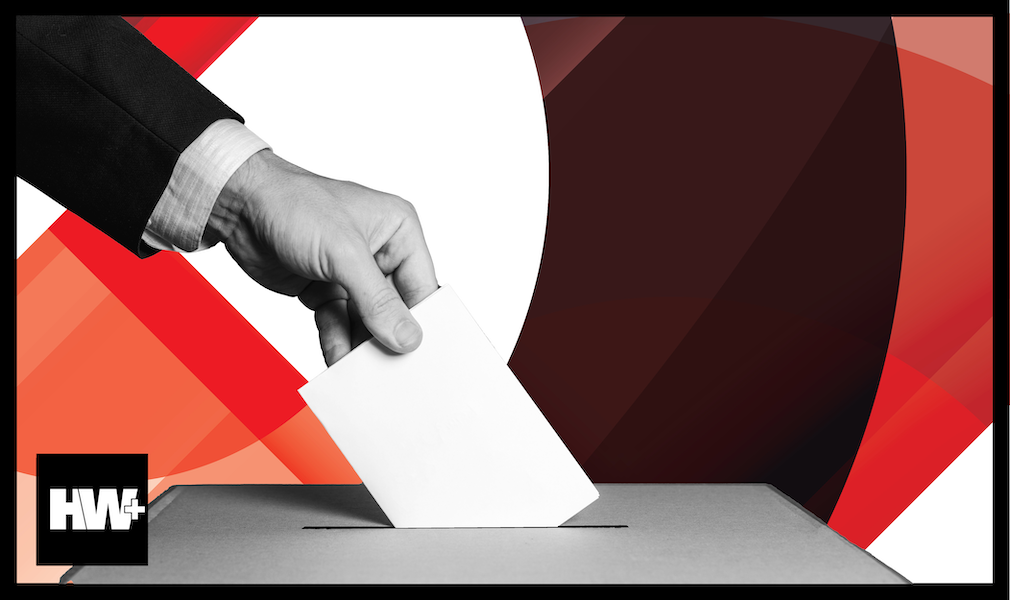
March began with perhaps the most surprising Super Tuesday election of all time, with former Vice President Joe Biden riding momentum from his South Carolina win to build a commanding delegate lead over Senator Bernie Sanders. Biden’s momentum continued last night, where he won decisively in Michigan, Missouri, and Mississippi. All of these election results have occurred while the coronavirus outbreak continues to accelerate. The coronavirus has the potential to completely disrupt election predictions this political season.
Kris Kully, partner at Mayer Brown, said that one of the biggest things she is paying attention to is how policymakers are addressing the coronavirus outbreak, because the extent to which they can address the crisis may have a large impact on voter sentiment in the fall.
In the last week alone, mortgage rates have dropped to an all-time low, and are expected to continue to drop, as the industry deals with an extreme level of demand that’s starting to expose some of the weak points in lender operations.
In addition to this, Kully said, “The emphasis on ‘social distancing’ and self-quarantines to slow the spread of the virus could mean fewer open houses and a general dampening of homebuyer and seller enthusiasm.” However, she said, “Everyone is hoping that the efforts to flatten the curve of the virus will allow homeowners (and the economy at large) to weather the outbreak without further serious impacts.”
But long before the industry was battling the impact of the coronavirus, there were plenty of big-ticket issues that needed to be addressed at the intersection of politics and housing.
Notwithstanding the shocks of the coronavirus, Kully said that if she had to pinpoint what presents the largest threat to housing finance, it would be that available inventory remains at low levels, which directly affects affordability, and has ripple effects on consumer debt and labor markets.
The inventory crisis and affordability are two issues HousingWire’s Mortgage Editor Ben Lane thinks should take center stage in the 2020 election. We asked several more housing experts to describe the main items they’re paying attention to in the elections, along with the greatest risks to the housing market.
“The performance of the economy affects which way the political pendulum swings,” said Mike Jones, managing director with Dixon Hughes Goodman. “There’s a lot of information packed into the level of interest rates and the spread between short- and long-term rates if you know what to look for.” (HousingWire columnist Logan Mohtashami explores this in his recent column.)
Jones said he is watching the candidates’ positions on the Consumer Financial Protection Bureau and banking regulations since they have major implications for the housing environment, as the industry has already witnessed. “These are powerful forces that affect opportunity, creativity and wealth. No one seems to have it all figured out, but the last dozen or so years have taught us a lot of lessons,” he said.
With similar sentiments to Kully, Jones added, “We’re living in extraordinary times. Colorful candidates, market volatility, low rates, a massive overhaul of the GSEs and the threat of a viral pandemic. Could it be any more interesting?”
Thinking about the bigger picture, David Battany, executive vice president, capital markets with Guild Mortgage, emphasized the important role that housing needs to play in the election since housing is such a big driver of the U.S. economy.
Battany focused on reforming Fannie Mae and Freddie Mac. “GSE reform is long overdue. However, congressional action on GSE reform seems really unlikely due to the complexity of actual reform, the risk of unintended consequences from any reform that could potentially harm the housing market and economy, and the sense that the GSEs today are running at a good level in terms of regulation and eligibility,” Battany said. “Since the GSE system seems to be working okay, there’s not a huge urgency for Congress to prioritize GSE reform.”
While he said the probability of congressional action on GSE reform in the next two years is extremely low due to complexity, he did note that the likelihood of administrative action through the FHFA on parts of GSE reform could certainly change if a Democrat wins the presidential election.
There are some very important steps for GSE reform that seem to have bipartisan support that could be implemented by FHFA and not require congressional approval, Battany said.
Rep. French Hill, R-AR., who has a long history of working on housing policies in Washington, said, “In order to ignite change, all stakeholders, including both the private and public sector, within the housing ecosystem, must coordinate as this issue impacts so many Americans and is such a large contributor to our overall economy.”
Nearly 30 years ago, Hill wrote an op-ed in The Dallas Morning News, criticizing GSEs for straying away from their original affordable housing mission and called on the 100th Congress to “re-evaluate the need to expand the role of these federally sponsored housing agencies.”
Kully concluded that housing policies do not fit neatly into sound-bite election politics, at least not at the presidential level.
“The presidential candidates will likely have a housing plan on their web site with broadly stated goals, but I doubt we’ll hear much about those policies in campaign speeches or commercials,” she said. “However, state and local elections are a different animal. In those elections, candidates are very likely to focus on the particular housing issues of their jurisdictions. Whether it’s affordability, shortages in housing supply, tackling homelessness, or the impact of critical housing issues on local communities and economies, housing issues are certainly going to play a big role in those elections.”
There are more than 200 days until the presidential election, and whether it’s the coronavirus outbreak or other top housings issues, it’s important to look at the overall picture and the long-term impact of these challenges. But the area where your vote has the power to make the largest difference is at the local level.





